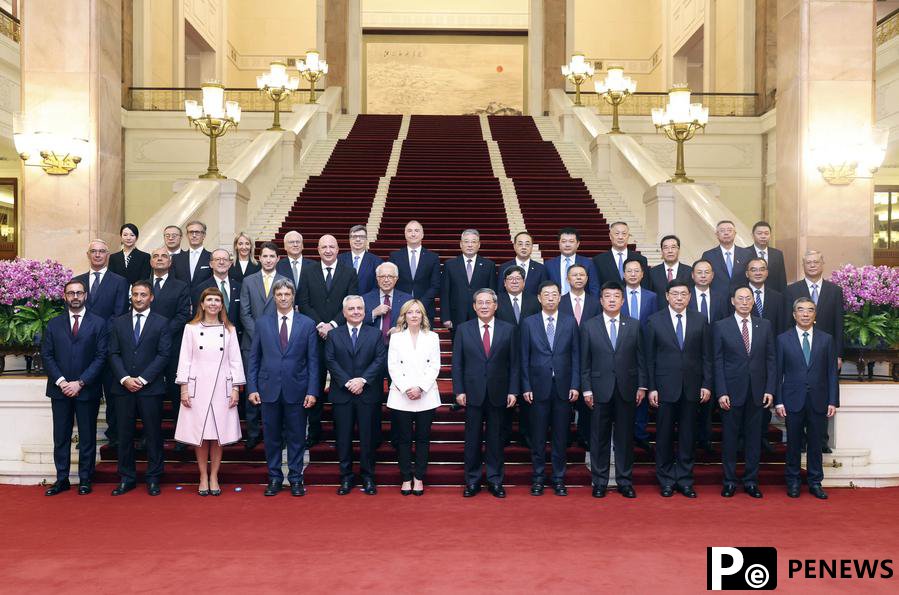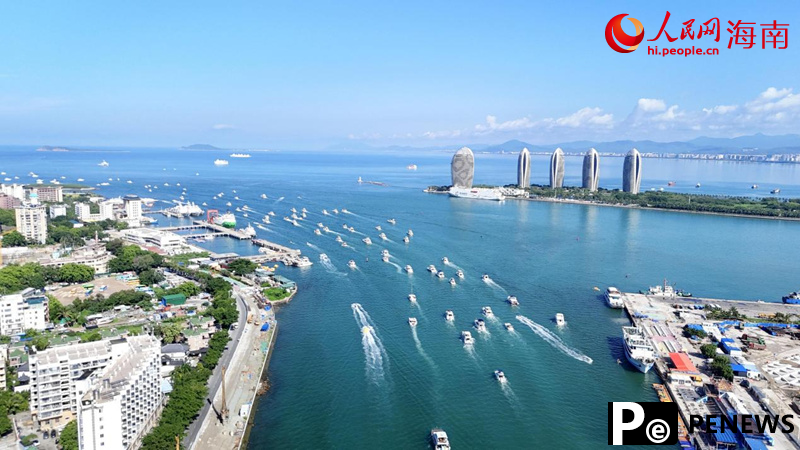Home>>
Yangtze River Delta races ahead as integration modelBy Wang Ying (China Daily) 08:27, August 02, 2024
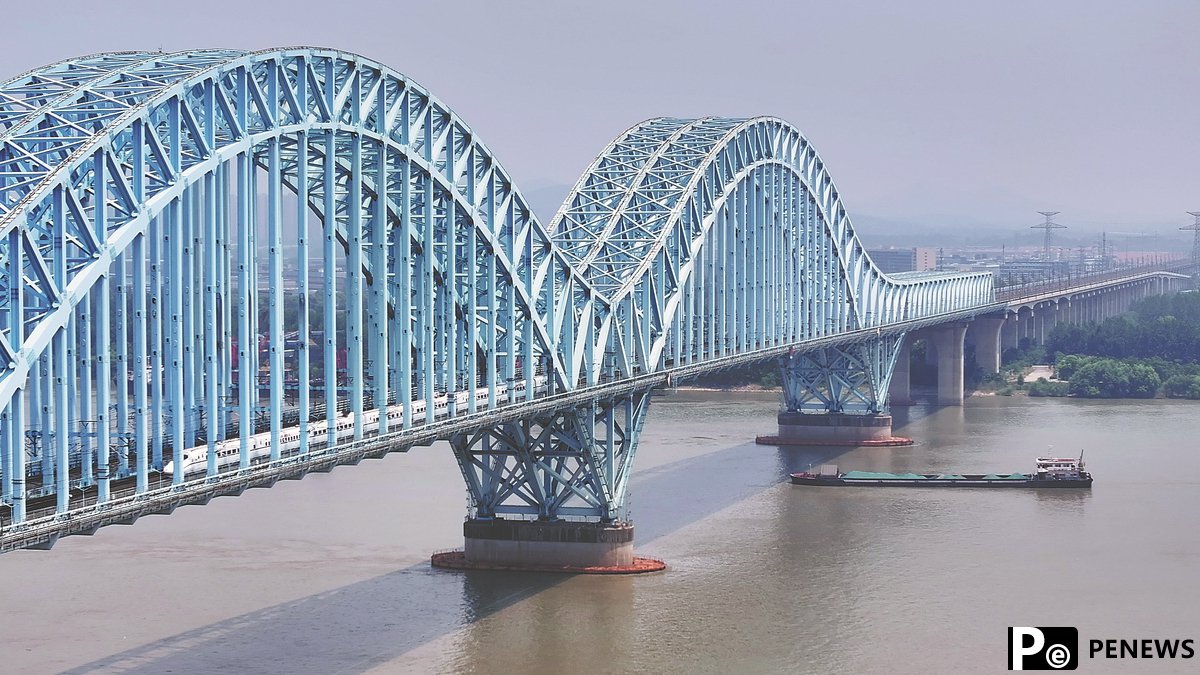
The first super loop rail service, train G8388, passes over the Dashengguan Yangtze River Bridge in Nanjing, Jiangsu province, on June 15. (CHEN DANCHI/XINHUA)
To complete his Chinese bucket list, Dominican student Danzel Djimon Dangleben wants to travel from Shanghai to see major attractions in three nearby provinces.
The 26-year-old, who is studying Chinese at Tongji University in Shanghai, hopes to see firsthand "the sea of clouds" on the peaks of Huangshan Mountain in Anhui province, discover the beauty of Qiandao Lake in Zhejiang province, and take a close look at a two-stringed bowed erhu in Wuxi, Jiangsu province. He was excited to learn he could reach all three destinations by taking the "super loop" high-speed rail service.
"There is no high-speed railway in my home country, so it is an extremely novel and special experience for me to travel by the high-speed trains, taking me from one city to another within a few hours or even dozens of minutes," he said.
Dangleben can speak Chinese quite fluently after studying for nine months, and plans to visit a variety of scenic spots near Shanghai during the summer vacation. The high-speed railway loop is the first of its kind in the region and links key cities as well as scenic spots.
With 21 stations in major cities across the Yangtze River Delta region, the railway loop stretches for more than 1,200 kilometers and is regarded as a major achievement in the area's integration.
By linking Shanghai and the provincial capitals of Nanjing in Jiangsu, Hefei in Anhui province, and Hangzhou in Zhejiang, the super loop is expected to facilitate exchanges across the region and promote economic integration in the Yangtze River Delta.
In its first month of operation, the super loop recorded about 110,000 passenger trips, with its average occupancy rate reaching 90 percent, news portal ThePaper.cn reported, citing the China Railway Shanghai Group.
Accelerated pace
The integrated development of the Yangtze River Delta region is a national strategy now in its sixth year. The ambitious plan aims to build the region into a world-class cluster of cities, said officials and scholars.
By the end of 2023, the region had put 7,100 kilometers of high-speed railway network into operation, an increase of 71 percent compared with 4,150 km in 2018, according to Zhang Zhongwei, deputy director of the Shanghai Municipal Development and Reform Commission.
Gu Jun, deputy secretary-general of the Shanghai municipal government, said during a news conference on July 25 that the significance of the region's integrated development had become greater after the issue was raised at the third plenary session of the 20th Central Committee of the Communist Party of China, which concluded on July 18.
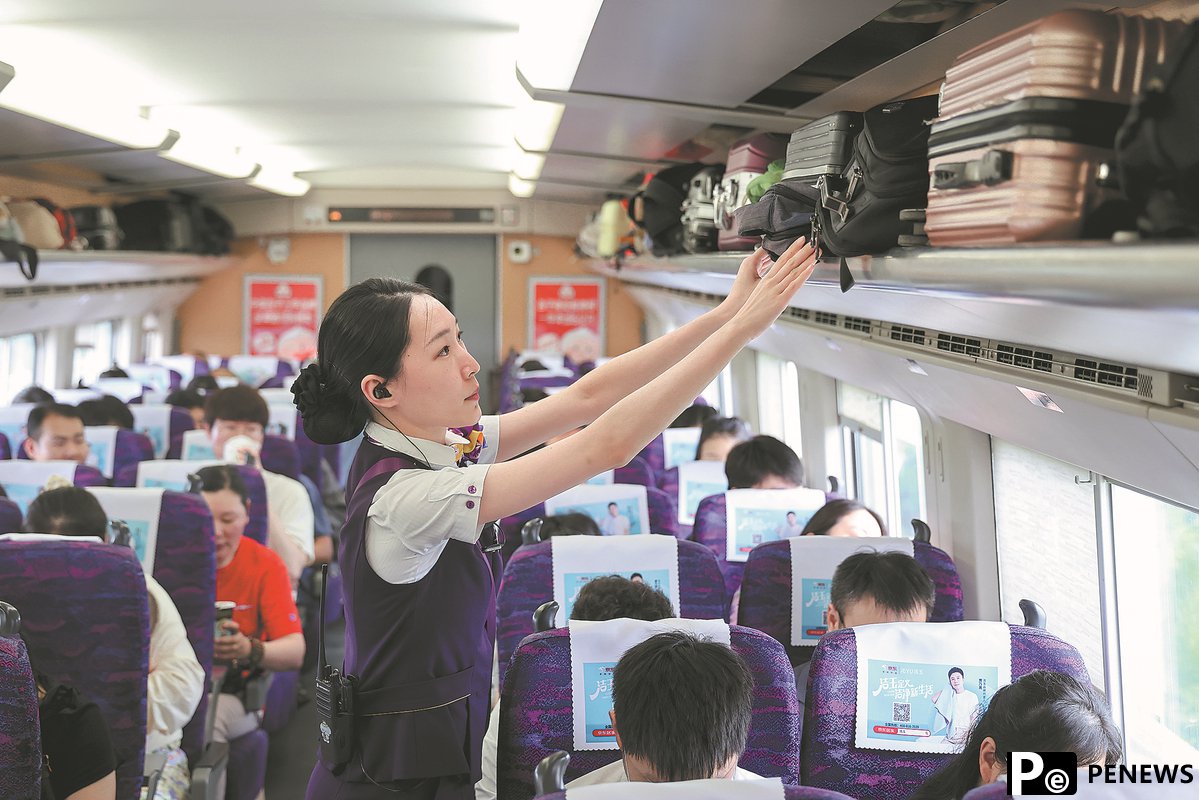
An attendant sorts luggage on train G8389 on July 15. (Photo/Xinhua)
"The latest three-year action plan indicates the integrated development of the Yangtze River Delta region is entering a new phase of deeper development," Gu said.
"Comprising nine major aspects and 165 key tasks, the plan for the years between 2024 and 2026 has charted a clear road map and outlined tasks to be accomplished in the coming three years," said Gu, who is also director of the Shanghai Municipal Development and Reform Commission.
The regional leadership will strive to realize the targets at an accelerated pace, Gu added.
Zhang said implementation of the three-year action plan will combine the solo efforts of each province or city "into a symphony of the region as a whole".
According to Zhang, the previous two three-year action plans had achieved 90 percent of their key tasks, gathered useful experience, and laid a solid foundation for the implementation of the new action plan.
"Integration and high quality are the keywords in implementing the action plan, and provincial entities will combine their three-year targets with annual tasks, come up with specific measures, and encourage local innovation," said Ling Ming, deputy director of the Jiangsu Provincial Development and Reform Commission.
Chen Haitao, deputy director of the Zhejiang Provincial Development and Reform Commission, said 10 projects for 2024, covering areas such as medical services, elderly care, culture, tourism, government services, and food safety, were announced at a high-level forum on the Yangtze River Delta's integrated development held in Wenzhou, Zhejiang, in June.
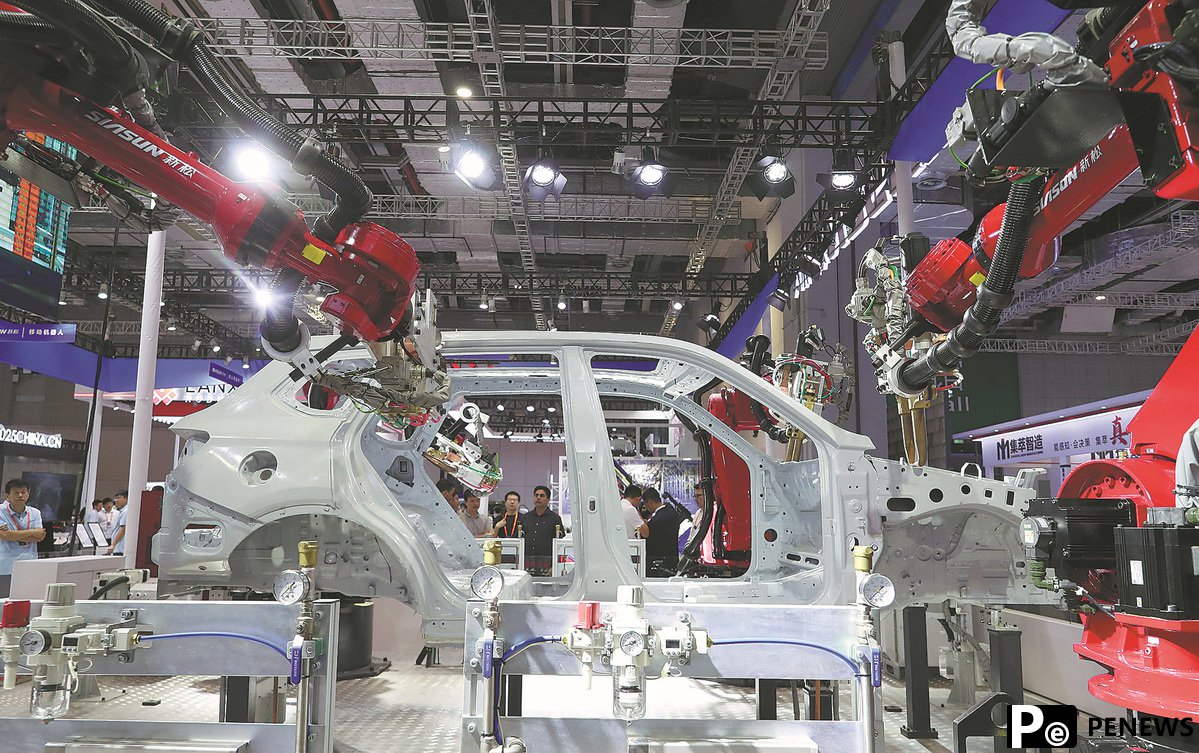
Visitors watch a robot welding a car body during the 23rd China International Industry Fair in Shanghai in September. (Photo/Xinhua)







